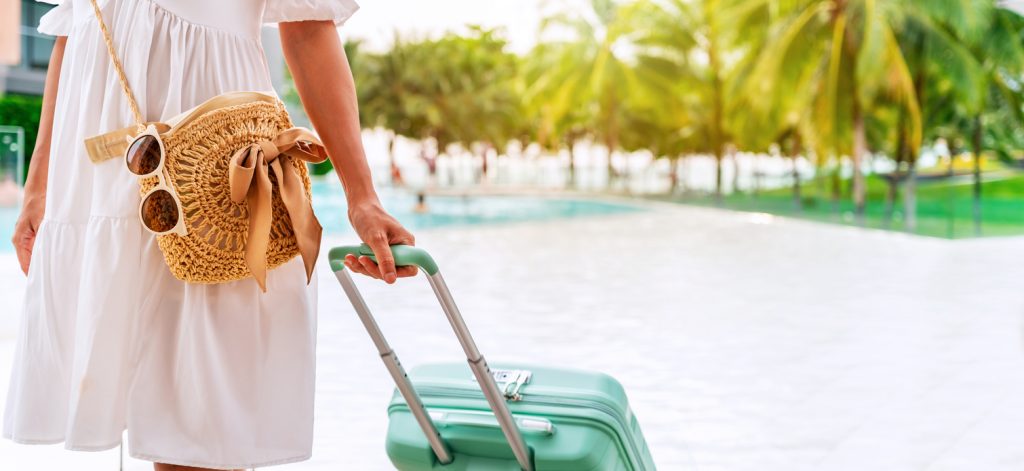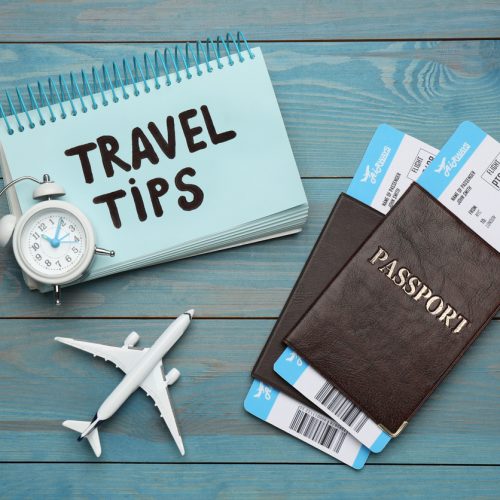Before you travel:
1) Contact the establishment ahead of your visit
Whether you are planning to eat out at a restaurant, stay at a hotel or go on a cruise, it’s really important that you contact them beforehand to see if they can cater for your allergies. If they can, this will also give them the opportunity to prepare for your visit. If they can’t, or if you don’t feel confident in their understanding, then you will know ahead of your visit that it’s probably not worth the risk and to look elsewhere. Make sure you keep a record of your conversation or take a name of the person you have spoken to over the phone, so you can reference back to them if required.
2) Get yourself an allergy translation card
If you’re travelling overseas and unfamiliar the language, make you sure you take a card or digital download that translates your allergies into the local language. This should ensure there is no confusion when it comes to what your allergies are and the seriousness of them. You can make these yourself or buy them online. I also translate some of the top allergens at the bottom of my travel posts, which you can also use if it helps (for example French and Arabic in my Marrakech post). I also find Google Translate to be a really valuable tool when speaking to management/chefs to discuss your requirements.
3) Pack some food to take with you on holiday
I always find it a good idea to take some food away with us, such as bread, snacks and desserts, in case there are any issues with where we are staying. Desserts especially are a huge issue for us, given the nut, dairy, egg and wheat allergy, so we always take plenty. Make sure that all packaging are properly sealed and the longer the shelf life the better!
4) Take your own bedding
Consider taking your own sheets if you are sensitive to washing detergent. This might seem a bit extreme, but there is nothing worse than an eczema flare up in the heat! Just be careful housekeeping don’t take these away the next day, so make sure you put them away in your suitcase before you hang the ‘service my room’ card on your hotel door the next morning!
5) Get an insulated medical kit bag for your EpiPens
This is especially important if you are heading to a very hot country. EpiPens (epinephrine auto-injectors) should be stored at room temperature, between 15-25°C (59- 77°F) and shouldn’t be refrigerated. Temperatures below 15°C can damage the injector mechanism, and prolonged exposure to high temperatures can degrade the epinephrine. An insulated EpiPen Case will ensure they remain at the right temperature. A cool bag will also help if you are heading for the beach or if you know you will be in the heat for a prolonged amount of time.
6) Find out where the nearest doctor/hospital is
If you are staying at a resort or going on a cruise, they will usually have an onsite doctor. If they don’t, then they should know where to refer you in case of an emergency.
If you are staying somewhere smaller, I would advise that you locate the nearest doctor or hospital, just in case you do experience a reaction that will need medical care. Also make note of the local emergency number as it may differ to one at home.
Travel tips for the flight:

1) Contact the airline ahead of your flight if you have an allergy to nuts
Ensure you contact the airline well in advance of your flight, preferably when booking, to let them know you have an allergy to nuts. If you have an airborne allergy I would contact them before booking to ensure it will be safe for you to fly. Ask them to make an announcement onboard asking passengers to refrain from eating any nuts and ensure the snacks given out are nut free.
We recently flew with British Airways and they allowed us to board the plane ahead of everyone else and cleaned down the area again before we were seated. Ask the airline you are flying with or check on their website to see if this is an option for you. They made four announcements in total telling passengers that nuts were not allowed on the flight.
2) Always carry a medical kit
Always carry your own medical kit so that you have it to hand in case of any reactions. This kit should obviously be suited to your own medical requirements. We always carry 2 Epipens (2 in case the first EpiPen fails), antihistamine (cream and tablets) as well as inhalers. Make sure you also have a copy of your care plan from your doctor, not just to have in an emergency, but also to let others know that you are entitled to carry your medicine (or equipment if applicable). This is invaluable when going through airport security for example, to ensure nothing is confiscated. Also make sure that all medicine has the prescription label as described in the care plan. We have had liquid antihistamine bought over the counter confiscated, but when prescribed and in the care plan, we are able to take it through.
3) Take your own food when flying
Due to my sons complex allergies, we find getting a meal on any flight impossible! There is only one instance where he could get a meal and that was when a flight assistant offered him her jacket potato and beans, which only the staff were given. I still find it really infuriating that airlines still aren’t onboard yet (excuse the pun) when it comes to catering for more than one allergy! My recommendation is to take your own food and snacks. Again we have had no issue taking this through security when we have explained that there is nothing he can eat on the flight.
4) Don’t forget your skin cream or emollient
Take a small pot of cream/emollient (less than 100ml) that will be allowed through airport security. This is especially important if you suffer from Eczema as your skin will dehydrate quickly on a flight. You can purchase a travel pack so can take just enough of what you need for the flight. Remember to also drink plenty of water.
5) Clean the area where you are seated
Airlines have a very quick turnaround time at airports, so quite often the cleaning has been done very quickly and isn’t great. On top of basic hygiene, it’s always a good idea to take your own antibacterial wipes to clean down the area yourself, particularly the armrests and tray. Individual dual purpose antibacterial hand and surface wipes are great and fine to take through airport security.
On Arrival…

1) Ask to speak to the Chef when checking in
Ask to speak to the chef as soon as you check in so they are fully aware of your allergies. This will give them an opportunity to prepare ahead for your stay. If you have contacted the place you are staying ahead of your trip, I find they are often ahead of the game on this and will initiate the meeting themselves. Make sure you also notify the restaurant staff for each meal, so they can make the chef/kitchen aware of your arrival.
2) Avoid buffets if possible
Try to avoid any buffets if you can. There is always a high risk of cross contamination due to other guests sharing serving utensils or the odd kid helping themselves with their fingers. Ask the kitchen to prepare something in the kitchen away from any allergens.
On our most recent trip, the restaurant would allow us early access to the buffet before any of the other guests, so that cross contamination is avoided. They walked us around and explained what dishes were ok for my son to eat. This was great and something I will definitely ask for in the future.
3) ENJOY!!!
Above all else, enjoy your trip!! With the right preparation and planning ahead of your travels, you should now be able to enjoy a relaxing, stress free break. Download some films and your favourite boxset to your iPad, plug in your noise cancelling headset and relax!

